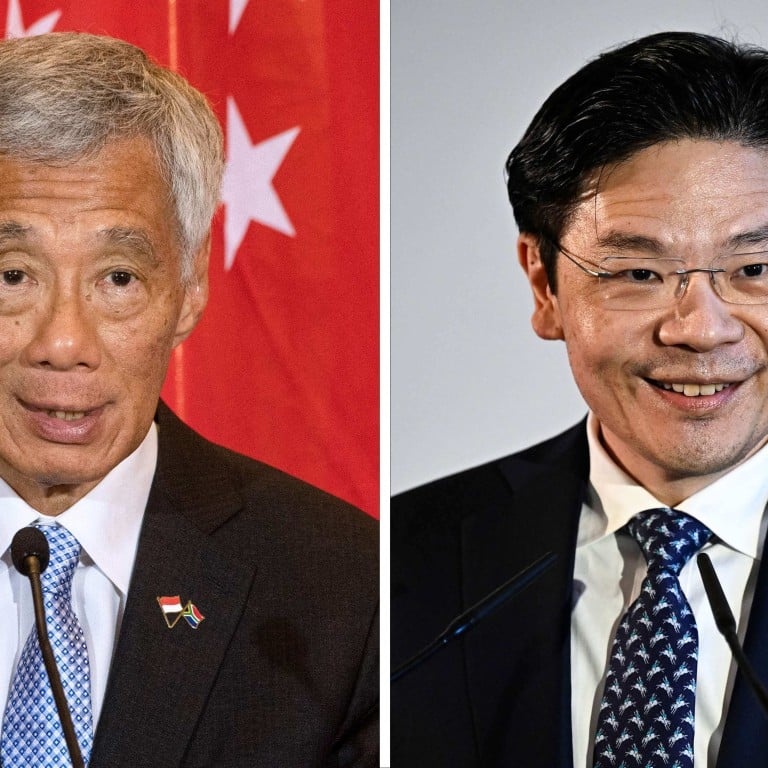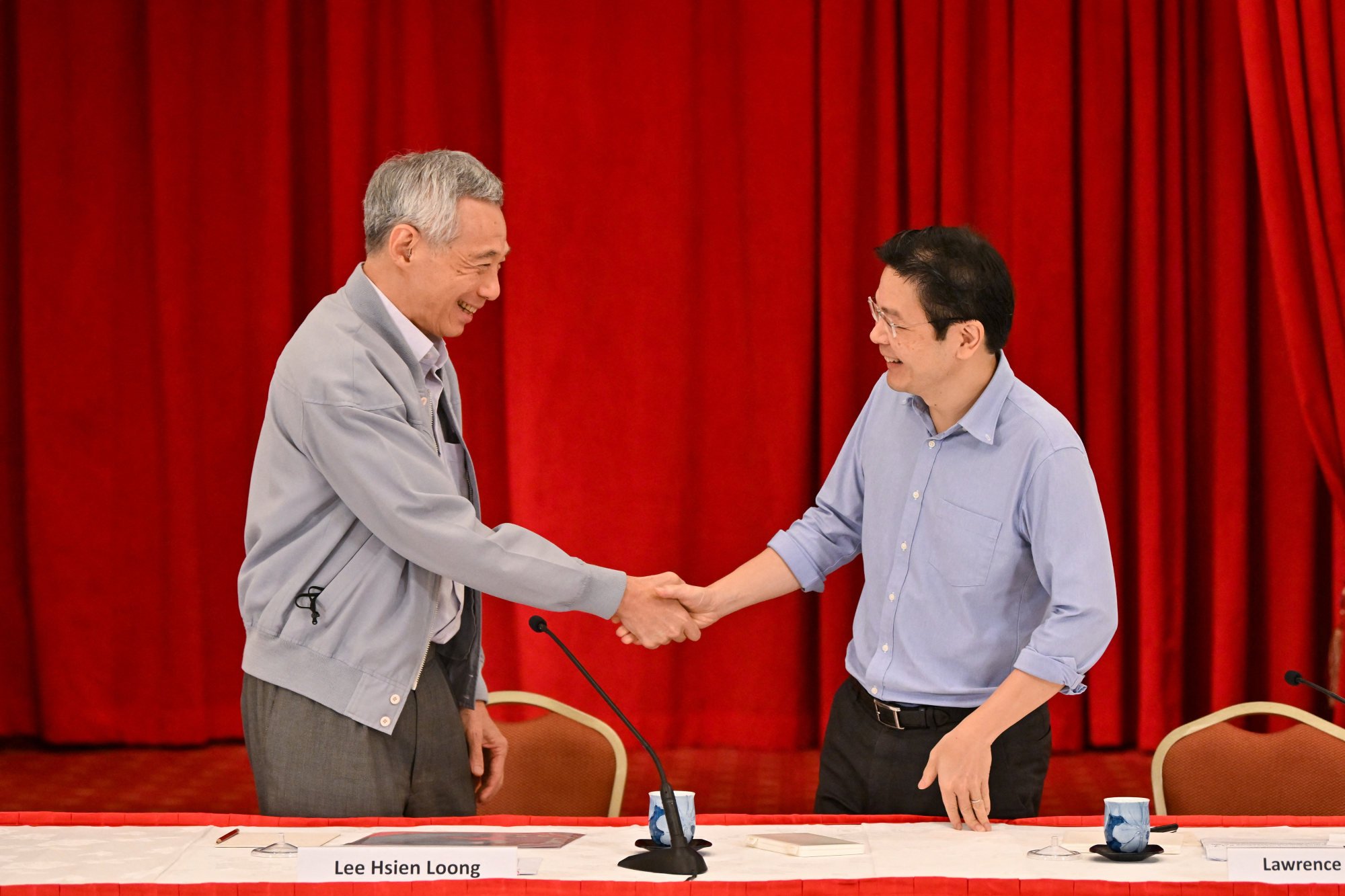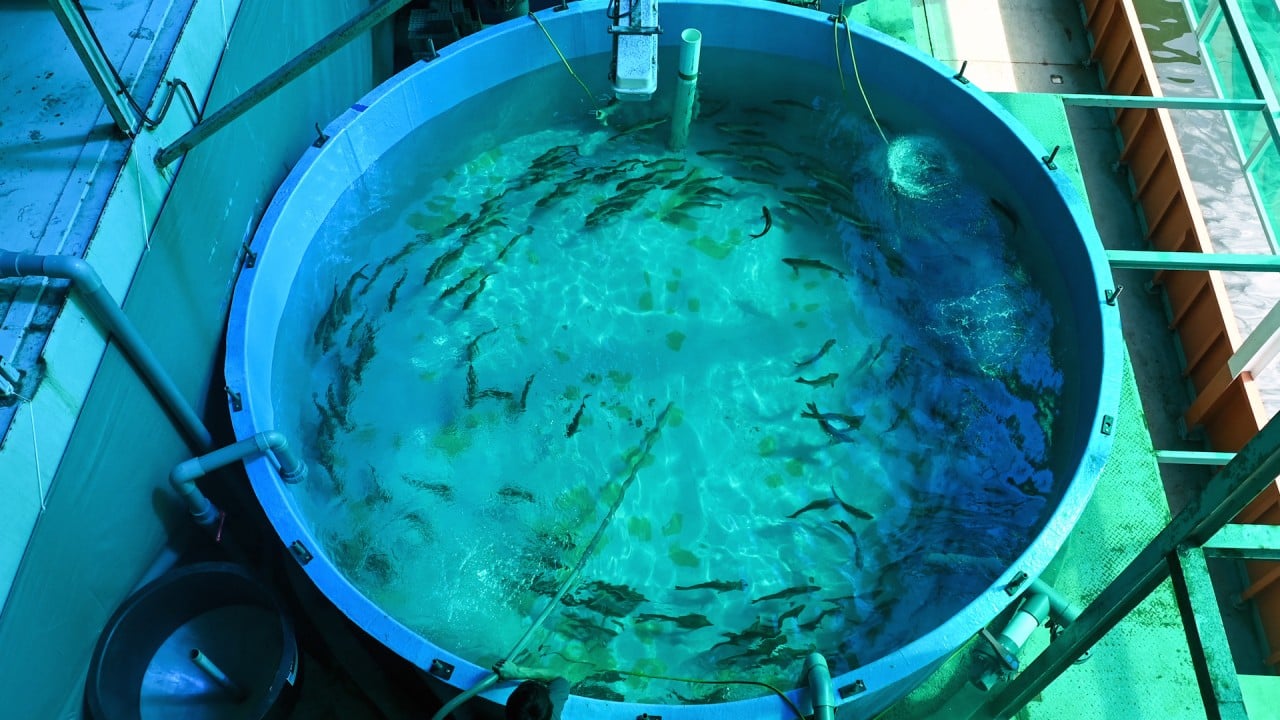
Singapore’s Lee Hsien Loong will hand over power to deputy Lawrence Wong on May 15
- Wong, 51, is the youngest among three front runners in the city state’s fourth-generation leaders initially tipped for the top post
- A dark-horse candidate, the current finance minister made his mark as co-leader of the government’s Covid task force
Wong, 51, who became deputy prime minister in 2022 after he was chosen by his peers to lead them, has not had the same length of apprenticeship as Lee or the latter’s predecessor, Goh Chok Tong.
A dark-horse candidate who started his career as a civil servant, Wong was not the original choice to be Lee’s successor but came into his own when he made his mark as the co-leader of the government’s Covid-19 pandemic task force.
Wong will be sworn in at 8pm on May 15 at the Istana, a statement from the Prime Minister’s Office said on Monday. “DPM Wong has the unanimous support of the PAP MPs,” the office said.
In a statement on social media, Lee described the leadership transition as a “significant moment”, adding that Wong and his team had “worked hard to gain the people’s trust, notably during the pandemic”.
“The 4G team are committed to keeping Singapore working well and moving ahead. These will always be top priorities for the government,” he said, urging Singaporeans to give Wong and his team their full support.
In a video on Facebook addressed to Singaporeans, Wong said that he had never expected that he would one day be called upon to serve as the next prime minister.
“When I was invited to enter politics in 2011, I agreed because I wanted to contribute to the Singapore story. I did not expect then to be asked to serve as the next prime minister of Singapore,” he said, adding he would accept this with “humility and a deep sense of duty”.
“I pledge to give my all in this undertaking, every ounce of my energy shall be devoted to the service of our country and our people.
“I seek your trust, your support and your continued faith in our shared vision,” he urged.
Wong is expected to lead the ruling People’s Action Party (PAP) into elections due to be held by November 2025 amid greater political contestation in the city state and a growing appetite for more checks and balances.
The PAP has governed Singapore for an uninterrupted 65 years since 1959 with a virtually non-existent opposition in the 1970s and early 1980s. That has since given way to a small but sustained opposition presence. In the current parliament, there are eight opposition members among the 86 elected members of the chamber.
Previous leadership transitions had been carefully managed affairs with the PAP priding itself in deliberately making it a non-event. A smooth changing of the guard reassured investors of the country’s long-term development and stability.
But the transition from Lee to Wong, part of a younger cohort of leaders known as the fourth-generation team or colloquially called the 4G, has been marked by unexpected twists that added uncertainty to the succession process.

“This year I am 60. When I also consider the ages at which our first three prime ministers have taken on the job, I would have too short a runway should I become the next prime minister then,” Heng told reporters at a press conference in April 2021.
The choice of successor was then left open as the 4G leaders began re-evaluating who among them could be their leader.
Wong, who is also finance minister, is 21 years younger than his predecessor but he will not be the city state’s most youthful prime minister. Lee Kuan Yew was 35 when he first took office.
Wong has had a relatively short tenure as anointed successor compared with previous successors. Goh was deputy prime minister for five years – but was known as the putative successor to Lee Kuan Yew long before that – while Lee Hsien Loong was Goh’s deputy for 14 years before taking over in August 2004.
Heng’s withdrawal initially cast the spotlight on two of the more prominent 4G leaders, Chan Chun Sing and Ong Ye Kung. However, in April 2022, 15 out of 19 young officeholders voted for Wong for the top job.
Wong’s ascent is widely attributed to his management of the pandemic as the co-chair of the country’s Covid-19 task force. He is also the youngest among the three front runners.
‘It’s subjective’: is Singapore really Asia’s happiest country?
However, Wong and his team are likely to be in for a tough electoral season. Analysts had previously told This Week in Asia the race would take place at a time when there was a stronger appetite for political opposition.
Beyond domestic politics, Wong will also have his work cut out for him on the foreign front, political observers have said, pointing out that he has not had much time to forge connections with emerging Chinese leaders or build contacts with other global heads.
It later released a sweeping report in 2003 calling for economic reforms before Lee took over as prime minister a year later.
During the course of Lee’s premiership, Singapore’s Central Provident Fund and tax regime also underwent significant changes. He also led the country through the financial crisis of 2008-09 and the Covid-19 pandemic that began in 2020.
Since the start of his premiership in 2004, Singapore’s gross domestic product has swollen from S$194 billion to more than S$600 billion (US$440.7 billion) last year.


